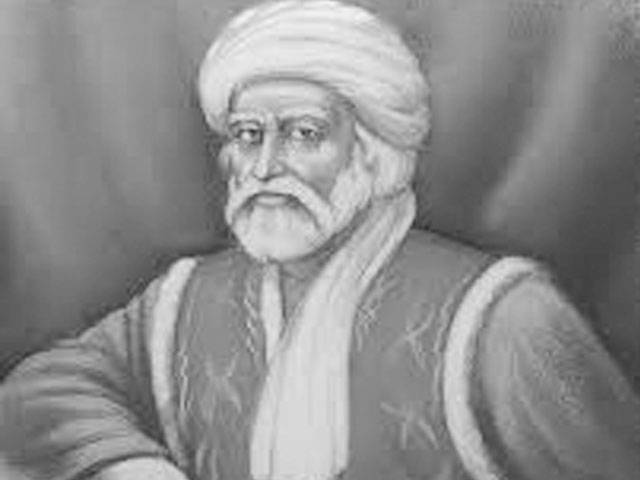“independence is higher in status than a Kingdom.
When a person loses independence, he becomes a prisoner.”
–Khushal Khan Khattak
Khushal Khan Khattak was born in 1613 in Akora Khattak, situated between Attock and Nowshera. He was not only a poet and a man of letters but also a brave warrior. He succeeded his father as the chief of his tribe in 1641. Initially, Khattak followed the legacy of his elders and continued supporting Mughal King Shah Jahan against such local tribes as Yousafzais. However, soon he started having differences with the rule of Aurangzeb, leading to his temporary arrest in Delhi for few years. His breaking apart from the Mughals led to his advocacy of Pashtoon nationalism and solidarity to collectively fight against the tyrannies of Mughals. The expression of Pashtoon’s sovereignty in Khattak’s verses was not xenophobic, based on the hatred of non Pashtoons but about a collective struggle against the injustices of the Mughal rule. Even though he did not receive much support from his fellow tribes during his life, Khattak became an inspiring figure for the future generations of Pashtoon Nationalists.
The life and poetry of Khattak indicates how different local tribes would criticize, rebel against the corruption, injustices of the powers at center. It is only with the arrival of modern nation state, however, that such ideas of rebellion, expressions of the local sovereignty have been criminalized. In our country, for example, any criticism of the state and local expressions of sovereignty are deemed as the conspiracies of our “enemies” to break apart the country and hurt Islam. Instead of curbing such criticisms as our state is used to, there is a need to accept and accommodate all such expressions of rebellions, since they emerge out of genuine misgivings, injustices.






